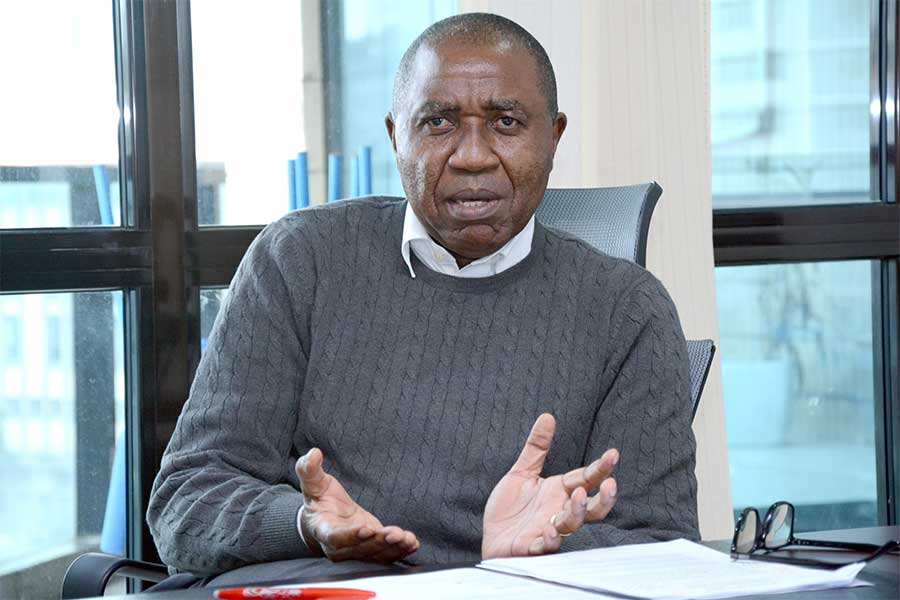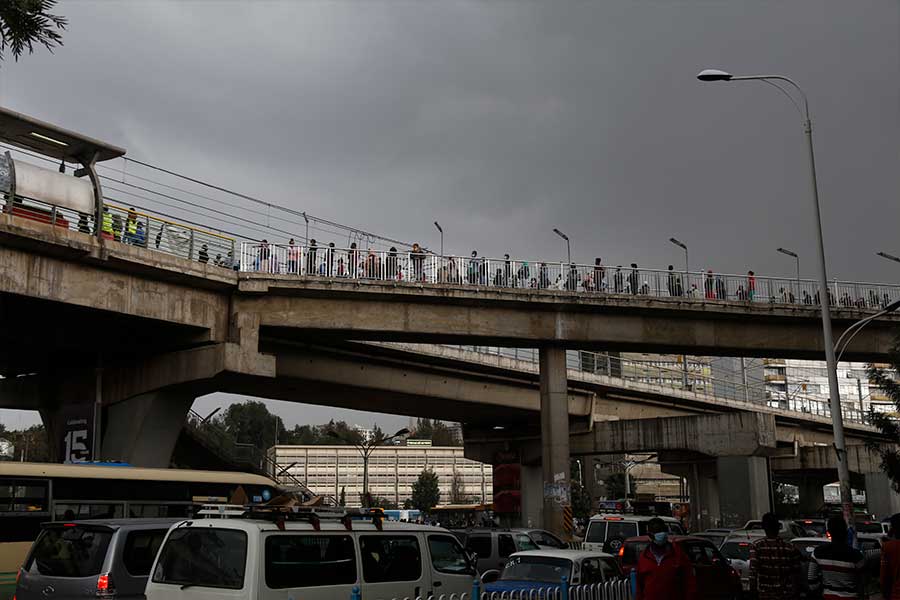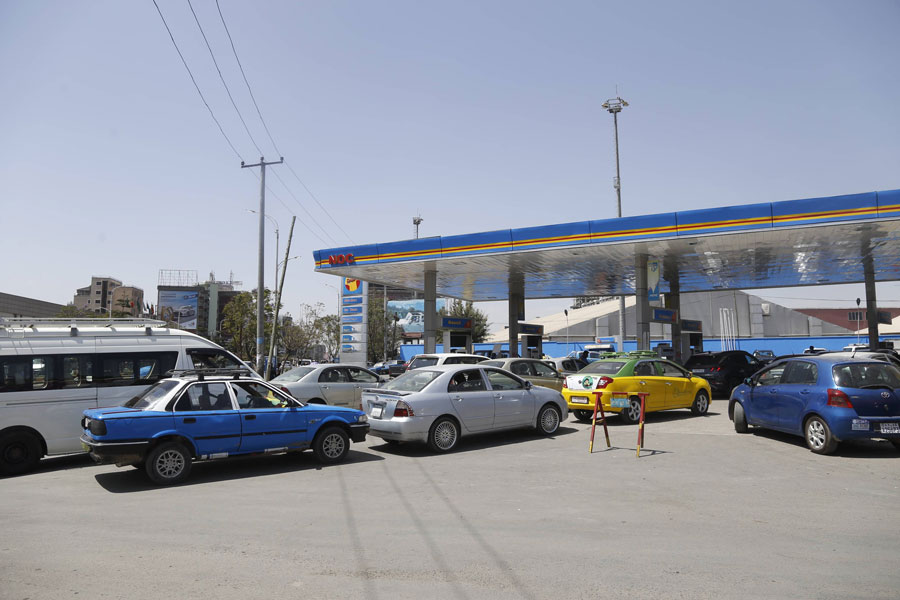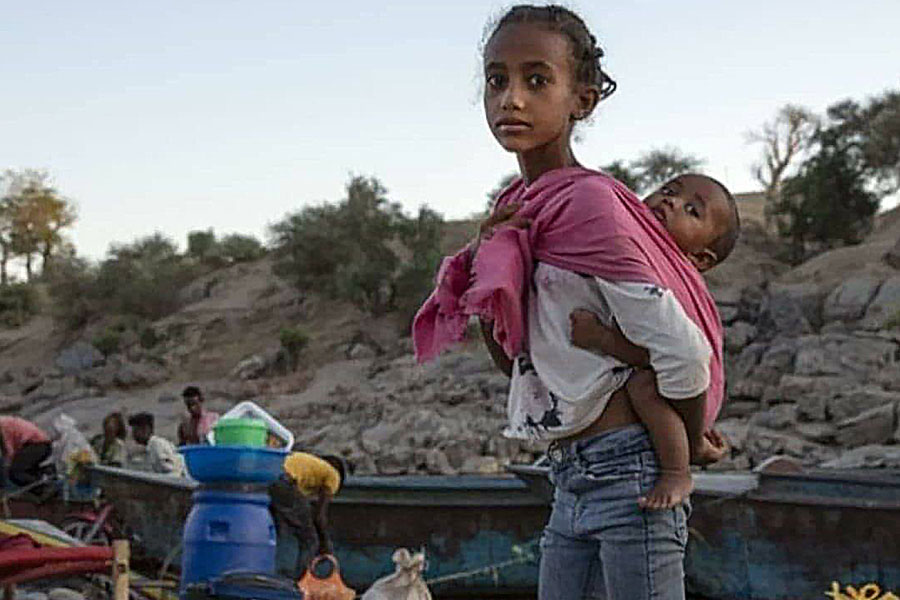
Commentaries | Mar 01,2024
Nov 13 , 2021
By Christian Tesfaye
Two years ago, it would have been hard to imagine that the situation would be as bad as it is now. By the same logic, it would seem hard to imagine that matters will ever improve once again. But history is full of surprises. Sometimes it pays to hang around to see how things turn out.
But there is one thing that is clear through all of the chaos going on in Ethiopia now. And this is that no one should ever ask why the country remains poor. It is not bad economic policies, weak supply chains, lack of an entrepreneurial culture or anything of that nature. These factors may contribute to poverty but not anywhere near to the extent that political violence does.
The relationship between poverty and conflict is not hard to surmise. The latter leads to the loss of human capital (not just death but a dip in health and education outcomes), stress and anxiety and destruction of property and infrastructure, all of which contribute to a significant loss in productivity. When productivity falls, businesses and firms cannot operate, let alone invest and expand, and jobs are lost. The greater the unemployment levels, the lower the aggregate demand as savings and spending die out. This is logical enough.
But, one would assume that, by now, Ethiopians know this. Surely, they stay as far away from wars as possible.
Unfortunately, no. Political scientists will write about what led to the war, and most of them will do so without any sense of objectivity to their historical analysis (thus, these will be worthless except to diagnose the worldviews of different groups). The more dispassionate writers – therefore worthy of reading – may have something to say that it has to do with a combination of pride, greed and political entrepreneurship. The last one has had an outsized impact. As Ethiopia has increased the number of its doctors and engineers, the welfare of citizens has improved. Still, the explosion on the political space of activists has had an inverse relationship to the wellbeing of the public.
“The causal factors conducive to war making are varied but all are characterised by tribal, religious, and ethnic rivalries that political leaders exploit,” Morris Miller, University of Ottawa, writes in “Poverty as a Cause of Wars?”
But even without political entrepreneurs and macho culture, conflicts are probably unavoidable. This is because of the relationship between poverty and war, although it is hard to prove the direction of the causal relationship.
Are poor countries more likely to find themselves in petty civil wars? Or are some countries poor because they are prone to war?
There are some reasons to believe that there is no such thing as being prone to war as a society. Take Germany and Japan, historically belligerent states that liked to invade their neighbours. Yet, today, as some of the richest countries in the world, they are one of the most peaceful. A larger view of this can be taken. As living standards have been improving radically over the past seven decades, conflicts have been going down.
On the other hand, conflicts have continued to erupt in sub-Saharan Africa, a region that has lagged significantly relative to every region in the world – from income to health and education outcomes. It might have to do with the fact that many of the region’s young do not see a clear path to financial wellbeing. They are much more susceptible to the idea that the only path to a higher standard of living – however they understand it – is through the way of the gun.
Ethiopia’s current civil war is undoubtedly heartbreaking. But if poverty continues, combined with the current practices of political entrepreneurship, it will only be one of many to come.
“Poverty and conflict are widely understood to be closely interconnected; with poverty making countries more prone to civil war, and armed conflict weakening governance and economic performance, thus increasing the risk of conflict relapse,” as Jonathan Goodhand, at the Chronic Poverty Research Centre, wrote in “Violent Conflict, Poverty and Chronic Poverty.”
PUBLISHED ON
Nov 13,2021 [ VOL
22 , NO
1124]


Commentaries | Mar 01,2024

Sponsored Contents | Oct 08,2020

Radar | Aug 28,2021

Radar | Aug 22,2020

Agenda | Feb 12,2022

Viewpoints | Dec 02,2023

Sunday with Eden | Jan 18,2020

Editorial | Jan 28,2023

Commentaries | Dec 07,2024

Fortune News | Dec 05,2020

Photo Gallery | 177283 Views | May 06,2019

Photo Gallery | 167490 Views | Apr 26,2019

Photo Gallery | 158129 Views | Oct 06,2021

My Opinion | 136980 Views | Aug 14,2021
Commentaries | Oct 25,2025

Dec 22 , 2024 . By TIZITA SHEWAFERAW
Charged with transforming colossal state-owned enterprises into modern and competitiv...

Aug 18 , 2024 . By AKSAH ITALO
Although predictable Yonas Zerihun's job in the ride-hailing service is not immune to...

Jul 28 , 2024 . By TIZITA SHEWAFERAW
Unhabitual, perhaps too many, Samuel Gebreyohannes, 38, used to occasionally enjoy a couple of beers at breakfast. However, he recently swit...

Jul 13 , 2024 . By AKSAH ITALO
Investors who rely on tractors, trucks, and field vehicles for commuting, transporting commodities, and f...

Oct 25 , 2025
The regulatory machinery is on overdrive. In only two years, no fewer than 35 new pro...

Oct 18 , 2025
The political establishment, notably the ruling party and its top brass, has become p...

Oct 11 , 2025
Ladislas Farago, a roving Associated Press (AP) correspondent, arrived in Ethiopia in...

Oct 4 , 2025
Eyob Tekalegn (PhD) had been in the Governor's chair for only weeks when, on Septembe...

Oct 25 , 2025 . By YITBAREK GETACHEW
Officials of the Addis Abeba's Education Bureau have embarked on an ambitious experim...

Oct 26 , 2025 . By YITBAREK GETACHEW
The federal government is making a landmark shift in its investment incentive regime...

Oct 26 , 2025 . By NAHOM AYELE
The National Bank of Ethiopia (NBE) is preparing to issue a directive that will funda...

Oct 26 , 2025 . By SURAFEL MULUGETA
A community of booksellers shadowing the Ethiopian National Theatre has been jolted b...